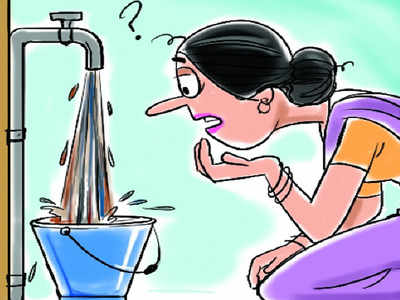The Hindu 29.04.2013
Greens see bid to commodify water in State

Formation of Kerala Drinking Water Supply Company Ltd.
On April 9, Ponnath Devarajan, city councillor for
Marad, a communally sensitive fishing hamlet that faces water shortage,
moved a resolution before the Kozhikode Corporation Council against a
government order for forming Kerala Drinking Water Supply Company Ltd.
He
said the company, described by the Water Resources Department in its
December 31, 2012, order as one modelled after Cochin International
Airport Ltd., was a sheer effort to commodify water, a natural resource
and public asset.
The December order gave the State
government and the Kerala Water Authority (KWA), separately, only 49 per
cent equity in the company, while the “private sector” had the majority
51 per cent shares.
The council unanimously passed
Mr. Devarajan’s motion, saying the government should retain control of
potable water supply, including public water taps.
Revised order
Hardly
a week later, on April 15, the Water Resources Department “revised” the
December executive order, owing to “allegations that the government of
Kerala is attempting to privatise the drinking water supply system in
the State.”
“Apprehensions have been raised about the
objects and the shareholding pattern of the proposed company. Doubts
have been raised whether the role of the KWA will be minimised, and the
new company will take over,” the order read.
“We have
drastically changed the December 31, 2012, order. The April 15 order
confines the authority of the company only to supply drinking water in
bottles at minimal rates and also via water tankers,” V.J. Kurian,
Additional Chief Secretary, Water Resources Department, told
The Hindu
. He had signed both the executive orders.
Suspect
But
environmentalists such as A. Achuthan find this version suspect. He
said the April 15 order was only the first step towards realising the
December order.
He pointed to how the order
reiterated the administrative sanction accorded to the company, and how
the share patterns had hardly changed – the State government and the KWA
still retained only 49 per cent equity. While the December order gave
51 per cent blanket equity to the “private sector,” the April one
altered the equity and distributed the 51 per cent among “firms,
individuals, beneficiary groups, residents’ associations, local bodies,
etc.”
However, there were no restrictions on the nature of the firms, beneficiary groups, or individuals involved.
The
April 15 order said that “large-scale usage” of packaged drinking water
in urban areas supplied by dominant “private sector players” at
exorbitant prices and increased dependence on water tankers operated by
“unscrupulous people” necessitated the setting up of the company.
“There
is not a word in both the orders on conservation of water. The
government orders signal a change in perspective on water, a creation of
scarcity and demand. Both orders propagate the mindset that water has
to come from somewhere, whether in tankers or bottles. It has to be
sourced from mega companies that have large storage facilities… All
this, when water is right under your feet,” Mr. Achuthan said.
Enhanced role
The
April order said the KWA’s role would be enhanced to ensure that piped
water supply reached every household in the State by 2021 and 75 per
cent households by 2018. Besides, no water sources of the KWA would be
touched.
“If all they want from the company is to supply drinking water bottles at nominal rates, the KWA
has already begun construction of a bottled drinking water facility at
Aruvikkara. Why should you go for this company when the KWA already has
the expertise, infrastructure and resources available and ready… it’s
just common sense,” N.K Premachandran, former Water Resources Minister,
said.
He said this was a case of executive
orders overriding existing laws and accepted public policy such as the
Kerala Water Supply and Sewerages Act, 1986, and the water policy of
2008, respectively.

